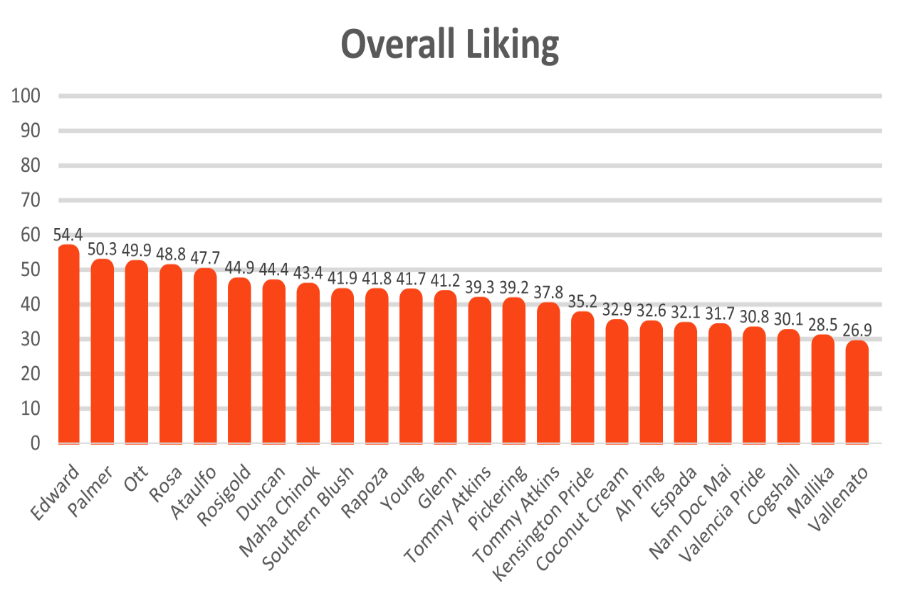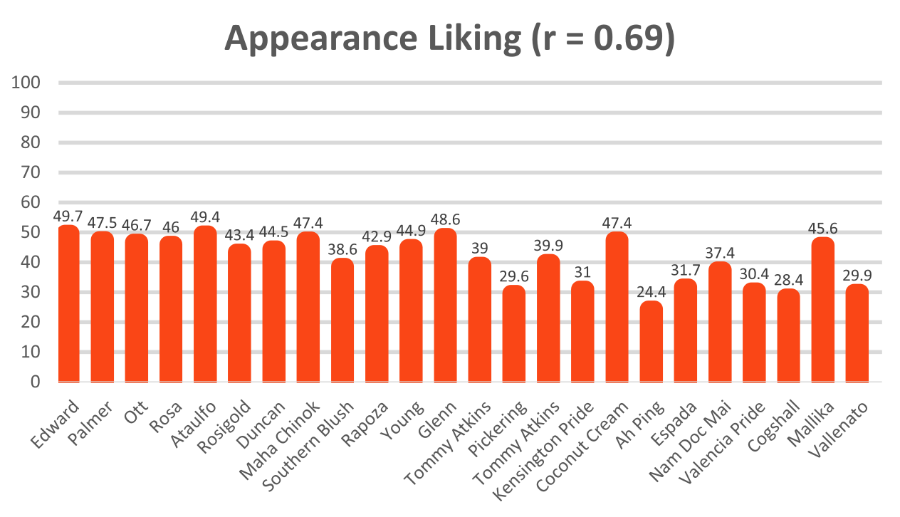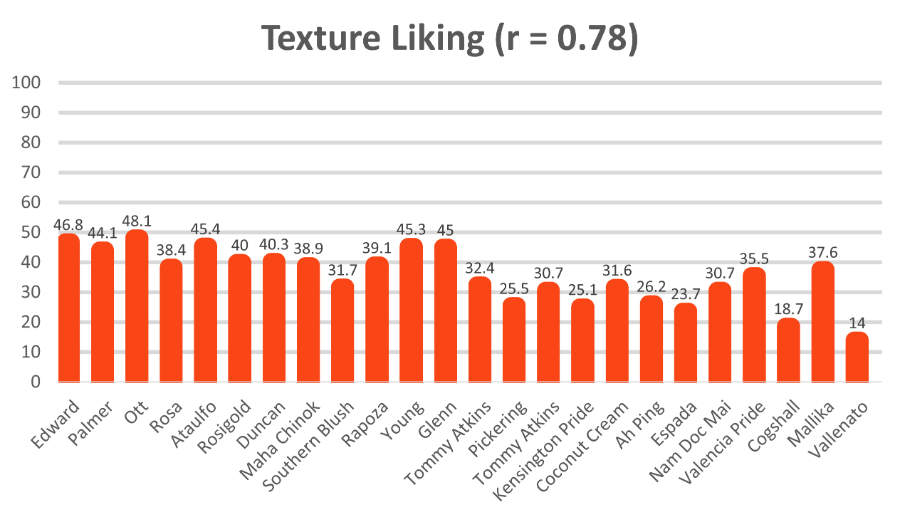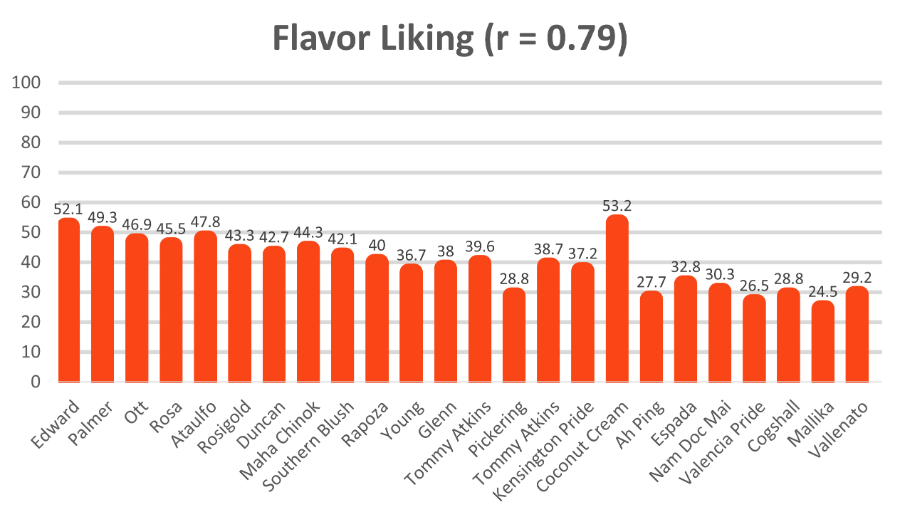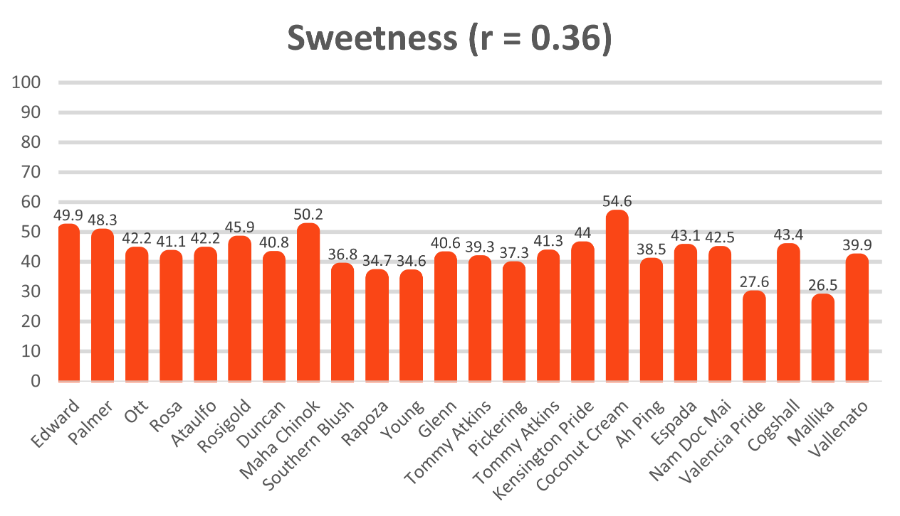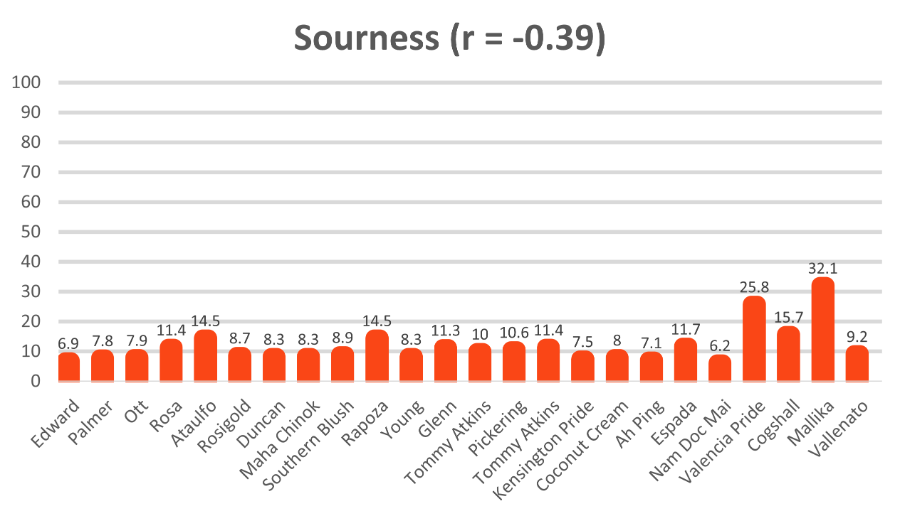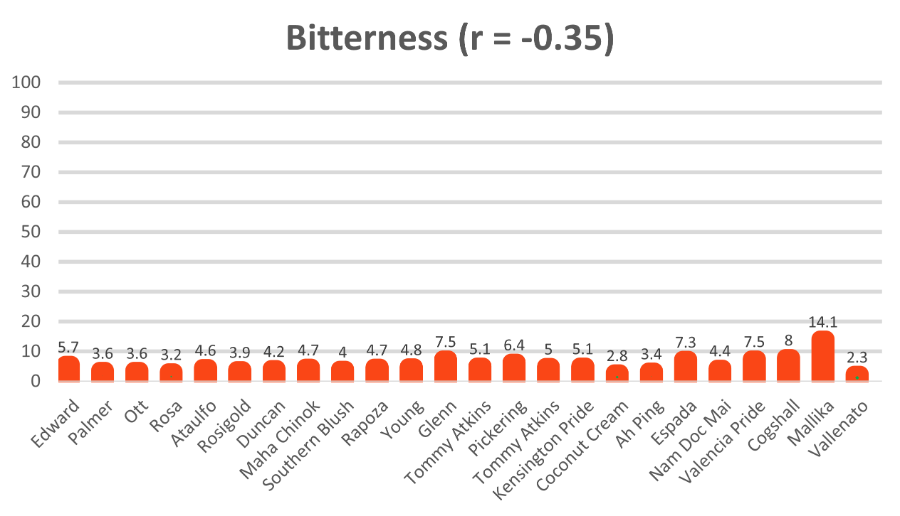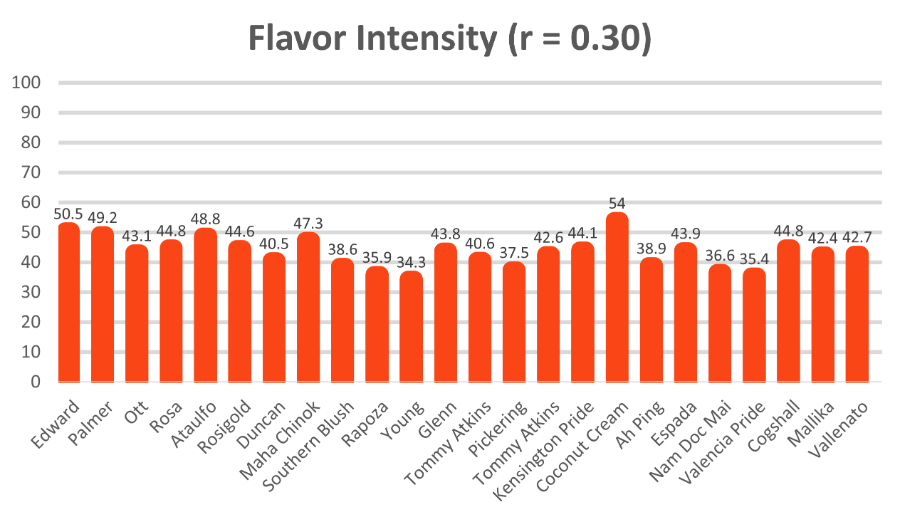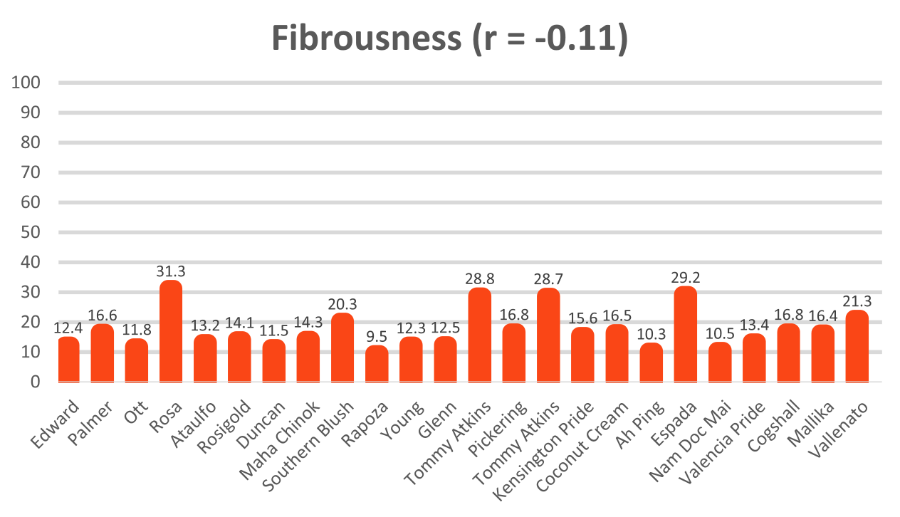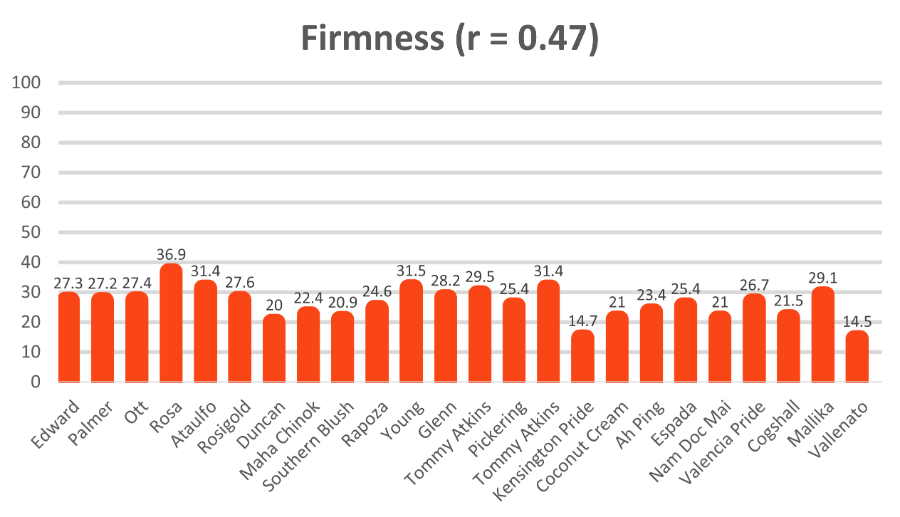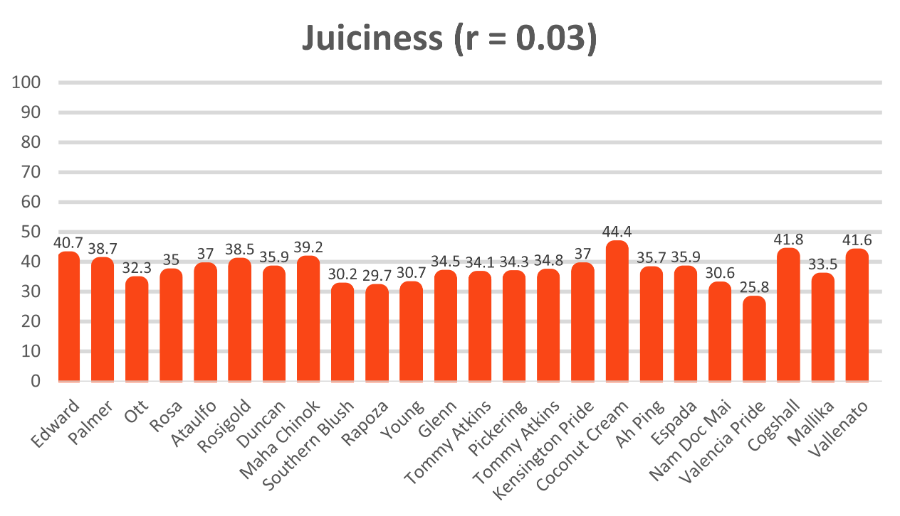Sensory Evaluation
Sensory evaluation is a scientific discipline that uses human senses—sight, smell, taste, touch, and hearing—to evaluate the qualities of food, beverages, and other products. It involves measuring and analyzing how people perceive different sensory attributes, such as taste, texture, aroma, and appearance. The goal is to quantify these sensory experiences in a controlled and systematic way to better understand how consumers respond to products.
Material and Methods
- Consumers (~ 100 people) of mangos were recruited from University of Florida
- Panelists rated overall liking, appearance liking, texture liking and flavor liking on the Global Hedonic Sensory Scale
- 100 = worst disliking of any kind experienced
- 0 = neutral
- 100 = best liking of any kind experienced
- Panelists rated sweetness, sourness, bitterness, flavor intensity, fibrousness, firmness and juiciness on the Global Intensity Sensory Scale
- 0 = none
- 100 = strongest sensation ever experienced
- Correlation analysis was performed to identify characteristics most related to overall liking (r). Higher numbers indicate greater liking.


